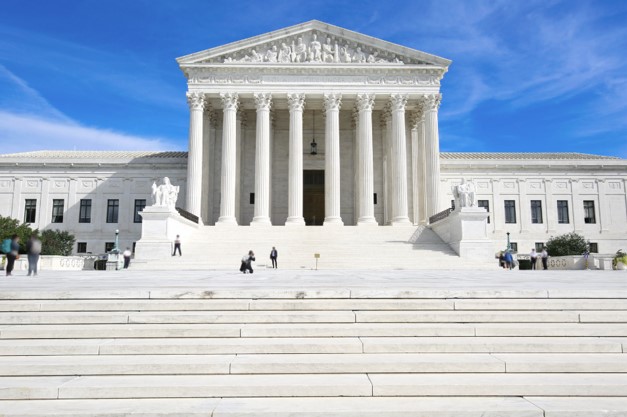Introduction
The issue of voter registration and access to the electoral process remains a hot topic across the United States, particularly in states like Florida. Recently, a significant legal decision was rendered by a federal judge regarding a law that imposed stringent requirements on third-party voter registration organizations. This ruling is poised to have serious ramifications, especially for marginalized communities that often rely on these organizations to ensure their voices are heard during elections. This article delves into the details of the law, the court’s ruling, and the broader implications for voting rights in the United States.
The Florida Law in Question
The 2023 law aimed at regulating third-party voter registration groups was met with immediate backlash from many advocates for voting rights. One of its most controversial aspects was the requirement for these organizations to disclose exhaustive personal information about their volunteers. This included asking for their political affiliations, criminal histories, and imposing considerable fines for any errors in voter registration forms. Advocates argued that such measures would not only deter volunteerism but also create an environment rife with fear and intimidation.
Judicial Review and Constitutional Concerns
On August 27, 2024, Judge Eleanor Grant struck down the state law, stating that it violated constitutional protections provided under the First and Fourteenth Amendments. In her ruling, she pointed out that the measure unjustly created barriers that hindered the efforts of organizations working to increase voter participation. Grant noted that the state failed to provide a compelling rationale for these restrictions, emphasizing that they threatened the foundational principles of democracy.
Impact of the Law on Marginalized Communities
Critics of the law highlighted its detrimental effects on marginalized communities, particularly those from minority and low-income backgrounds. These communities often rely on third-party organizations for voter registration assistance, especially in a state like Florida, known for its diverse population. The heightened requirements and the risk of exorbitant fines for minor registration errors presented a significant hurdle that could deter many from seeking assistance. Ultimately, the law was seen as an obstacle to enfranchisement, raising alarms about its potential to suppress voter turnout.
Reactions from Key Stakeholders
The reaction to Judge Grant’s ruling was largely celebratory among voting rights advocates. Carla Jenkins, the executive director of the Florida Voting Rights Coalition, described the decision as a protection of fundamental voting rights, allowing organizations to continue their important work without fear of punitive action. However, not all responses were positive. Governor Ron DeSantis expressed his discontent, labeling the ruling as a setback in the state’s efforts to enhance election security and combat potential voter fraud. He announced intentions to appeal the verdict, indicating a continued battle over voter registration laws in Florida.
Broader Legal Context and Nationwide Implications
This ruling fits into a larger narrative concerning voting rights across the United States, particularly in the wake of the contentious 2020 presidential election. Various states have introduced restrictive voting laws, often citing security as a primary concern. However, many critics argue that these laws disproportionately affect vulnerable populations and serve to suppress voter turnout. As courts around the country assess the legality of similar measures, this recent decision in Florida may set a precedent, potentially influencing future rulings in other states grappling with their own voting laws.
Conclusion
The recent federal court ruling striking down the Florida voter registration law represents a significant development in the ongoing struggle for voting rights in America. It serves not only as a victory for those advocating for expanded access to the electoral process but also as a critical reminder of the constitutional protections afforded to all citizens regarding their right to vote. As the landscape of voting laws continues to evolve, the fallout from this decision will undoubtedly have ripple effects, influencing not just legislative efforts in Florida but potentially across the United States.
FAQs
What was the main purpose of the Florida law that was struck down?
The law aimed to impose strict regulations on third-party voter registration organizations, requiring detailed personal information about volunteers and imposing heavy fines for mistakes on registration forms.
What were the constitutional grounds for striking down the law?
Judge Eleanor Grant ruled that the law violated the First and Fourteenth Amendments, creating unnecessary barriers to voter registration and lacking a compelling state interest to justify its restrictions.
Who are the primary advocates for the annulment of this law?
Voting rights advocates and organizations like the Florida Voting Rights Coalition have been vocal against the law, arguing it disproportionately impacts marginalized communities and hinders voter participation.
What are the potential implications of this ruling for other states?
This ruling may serve as a precedent for similar cases in other states, influencing legal challenges against restrictive voting laws as courts increasingly scrutinize provisions that appear to suppress voter turnout.
Will the Florida government appeal the ruling?
Yes, Governor Ron DeSantis has announced his intention to appeal the ruling, arguing that the decision undermines efforts to enhance election security.
What impact does the court’s decision have on voter registration efforts?
The decision is expected to relieve some of the fears and burdens placed on third-party organizations, thus encouraging more voter registration efforts, particularly aimed at underserved communities.

